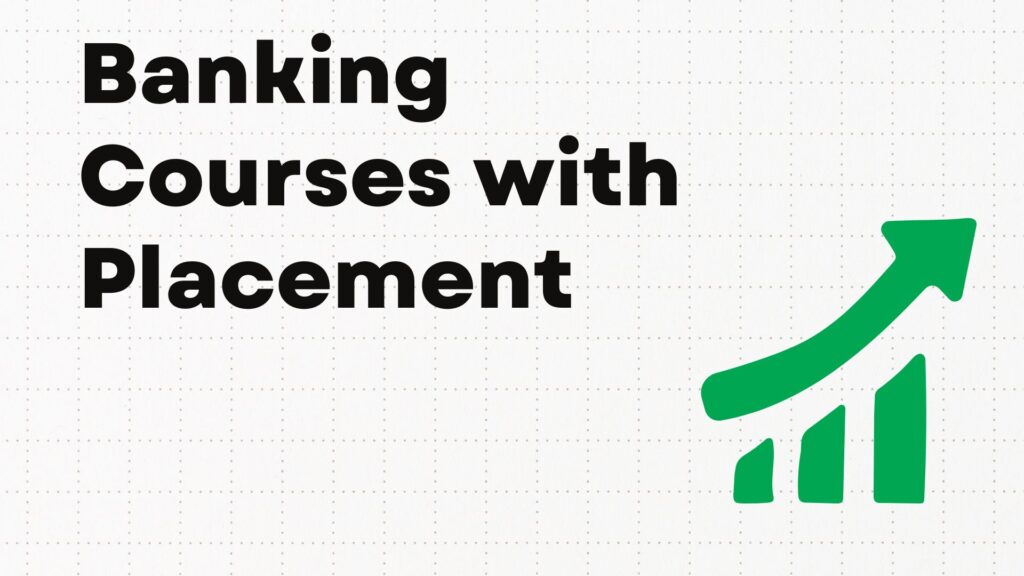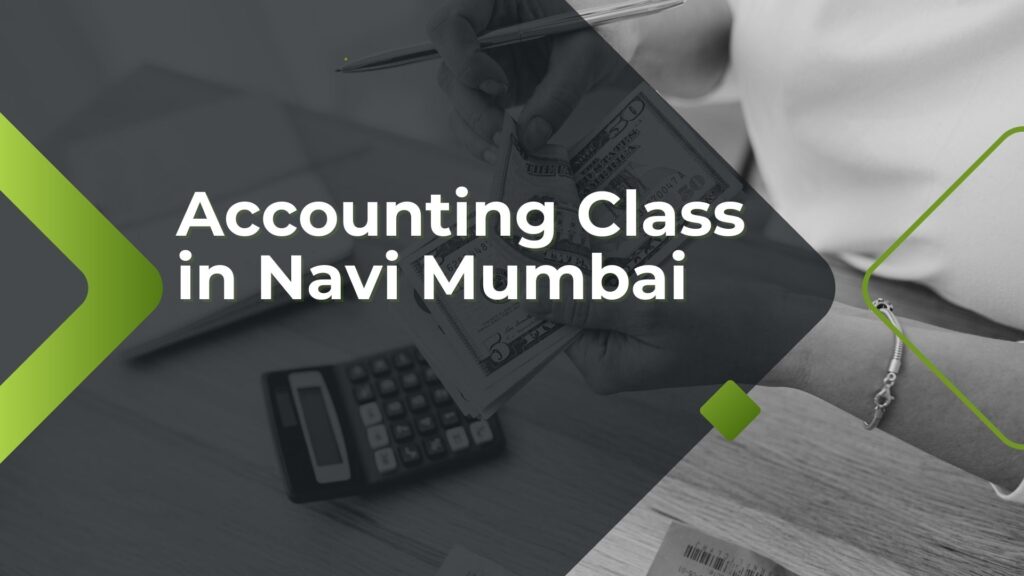Choosing the best course for banking job opportunities is essential for a successful career in the financial sector. These specialized courses equip you with the necessary skills in finance, customer service, and banking operations. Whether you’re a graduate or just starting, the best course for banking job roles will enhance your resume and improve your chances of getting hired by top banks. Courses also prepare you for competitive exams and interviews, increasing your confidence and employability. Investing in the best course for banking job ensures long-term career growth, stability, and access to high-paying positions in the banking industry.
Best Courses for Banking Job

Introduction Course for Banking Job
Introduction Banking is one of the most respected and stable professions in the financial sector. Choosing the right course for banking job can significantly enhance your chances of securing a high-paying and fulfilling position. In this comprehensive guide, we will explore every aspect of selecting the best course for banking job, including eligibility, curriculum, top institutes, career paths, salaries, and frequently asked questions.
Why Choose a Course for Banking Job
Types of Banking Courses

1. Certificate Courses in Banking
Course Info: banking job are short-term courses focused on the fundamentals of banking, finance, and customer service.
Eligibility: Open to 10+2 pass students or graduates from any stream.
Duration: 3 to 6 months.
Benefit: Ideal for quick skill development and entry-level banking jobs.
2. Diploma Courses in Banking
Course Info: Covers practical banking job skills including retail banking, loan processing, and credit analysis.
Eligibility: 10+2 or graduation in any stream.
Duration: 6 months to 1 year.
Benefit: Offers job-oriented training and improves employability in private and public banks.
3. Undergraduate Banking Courses
Course Info: Includes degrees like B.Com in Banking & Finance or BBA in Banking.
Eligibility: 10+2 with commerce or any stream depending on the institute.
Duration: 3 years full-time.
Benefit: Provides a solid academic foundation in finance, economics, and banking operations.
4. Postgraduate Banking Courses
Course Info: Includes MBA or PGDM in Banking & Financial Services, focused on managerial and strategic roles.
Eligibility: Graduation in any field, often with entrance exams like CAT/MAT.
Duration: 2 years full-time.
Benefit: Enhances leadership potential and access to high-paying roles in banks and financial institutions.
5. Professional Certification Courses
Course Info: Specialized courses such as JAIIB, CAIIB, NISM, NCFM, or CFA.
Eligibility: Generally for graduates or working banking professionals.
Duration: Few weeks to 6 months.
Benefit: Boosts professional credibility and enables specialization in specific banking areas.
6. Online Banking Courses
Course Info: Web-based courses from platforms like Coursera, edX, and private academies.
Eligibility: Open to all; some courses may require basic educational qualifications.
Duration: Flexible – can range from a few weeks to several months.
Benefit: Allows self-paced learning and is ideal for working professionals seeking career advancement.
Course Curriculum Overview
The best course for banking job is designed to equip students with both theoretical knowledge and practical skills required in the banking sector. The curriculum usually includes the following core subjects:
Principles of Banking
Learn the foundational concepts, functions, and types of banking systems essential for all banking professionals.Financial Accounting
Understand how to manage and interpret financial statements, balance sheets, and banking transactions.Economics
Gain insight into micro and macroeconomics to analyze financial trends, interest rates, and economic policies.Risk Management
Study methods to identify, assess, and manage financial and operational risks within a banking environment.Investment Banking
Explore capital markets, mergers, acquisitions, and corporate finance strategies used in investment banking.Banking Laws and Regulations
Learn about the legal framework governing banking operations, compliance, and regulatory bodies like RBI and SEBI.Customer Relationship Management (CRM)
Develop skills to effectively manage client interactions, build trust, and retain customers in the competitive banking sector.
Skills Developed in Course for Banking Job

1. Analytical Skills
Gain the ability to analyze financial statements, market data, and economic trends.
This helps in making informed decisions in lending, investments, and risk assessment.
Analytical thinking is crucial in roles like credit analyst or financial advisor.
It enhances problem-solving in real-time banking scenarios.
2. Numerical Ability
Develop strong mathematical and quantitative skills essential for banking tasks.
Includes handling interest calculations, EMIs, balance sheets, and profitability analysis.
Helps in precision-based roles like accountant or loan officer.
Accuracy in numbers boosts credibility and trust in banking operations.
3. Communication Skills
Learn effective verbal and written communication for interacting with clients and teams.
Good communication builds customer trust and ensures smooth operations.
It is key for handling queries, complaints, and presenting reports.
This skill is vital for client-facing roles like relationship managers.
4. Customer Service Skills
Understand how to assist, guide, and retain banking customers professionally.
Courses teach CRM tools and conflict resolution techniques.
Customer satisfaction is a top priority in retail and corporate banking.
These skills increase customer loyalty and enhance brand image.
5. Problem-Solving Skills
Train to assess challenges like fraud, loan defaults, and transaction issues.
Develop strategies to resolve problems with efficiency and professionalism.
Problem-solving is key in risk management and customer service.
This ability sets you apart in fast-paced banking roles.
6. Technical Skills
Learn to use banking software, financial tools, and digital banking platforms.
Understand how to operate core banking systems, spreadsheets, and databases.
Technical proficiency improves workflow and minimizes errors.
It’s essential for modern banking operations and fintech integration.
Top Institutes Offering Course for Banking Job in India

1. NIIT Institute of Finance, Banking & Insurance (IFBI)
Overview: A leading institute offering industry-aligned banking courses with practical training and placement support.
Eligibility: Graduates (any stream), final year students may also apply.
Duration: 3–6 months depending on the program.
Courses Offered: PG Program in Banking & Finance, BankVantage Career Program.
Skills Developed: Customer handling, risk assessment, credit processing, banking software usage, sales & service skills.
2. Institute of Banking Personnel Selection (IBPS)
Overview: IBPS itself doesn’t offer courses but conducts exams for public sector bank recruitment, requiring preparation via training centers.
Eligibility: Graduate in any discipline.
Duration: Coaching varies – typically 3–6 months.
Courses Offered: Exam-focused coaching for IBPS PO, Clerk, SO, RRB exams.
Skills Developed: Aptitude, reasoning, quantitative skills, general banking knowledge, exam strategy.
3. Indian Institute of Banking and Finance (IIBF)
Overview: A premier institute offering certifications for banking professionals and aspirants.
Eligibility: 10+2 or graduates depending on the certification.
Duration: 3 months to 1 year.
Courses Offered: JAIIB, CAIIB, Diploma in Banking & Finance, AML/KYC certification.
Skills Developed: Financial law, banking operations, regulatory compliance, ethics, digital banking knowledge.
4. Manipal Global Education – Manipal Academy of Banking
Overview: Offers placement-linked training in collaboration with major banks like ICICI and Axis Bank.
Eligibility: Graduates with 50%+ marks.
Duration: 9–12 months.
Courses Offered: PG Diploma in Banking and Financial Services.
Skills Developed: Retail banking, credit management, sales, customer service, soft skills.
5. TimesPro (by Times Group)
Overview: Offers banking programs with guaranteed interviews in private sector banks.
Eligibility: Graduate from a recognized university.
Duration: 3–6 months.
Courses Offered: Post Graduate Diploma in Banking Management, Certificate in Retail Banking.
Skills Developed: CRM, banking law, digital finance, sales & relationship management.
6. Imarticus Learning
Overview: A tech-driven institute providing industry-relevant banking and finance training.
Eligibility: Fresh graduates or professionals (depending on the course).
Duration: 2–6 months.
Courses Offered: Certified Investment Banking Operations Professional (CIBOP), Retail Banking certification.
Skills Developed: Financial modeling, banking operations, client interaction, investment analysis.
7. National Institute of Securities Markets (NISM)
Overview: Established by SEBI, NISM offers specialized courses in securities and financial markets.
Eligibility: Varies – typically for graduates.
Duration: Certification courses last a few weeks to months.
Courses Offered: Certifications in Mutual Funds, Capital Markets, Derivatives, Investment Advisory.
Skills Developed: Securities regulation, trading skills, investment strategy, financial compliance.
Career Opportunities After Completing a Course for Banking Job

1. Bank Probationary Officer (PO)
POs banking job manage daily bank operations and supervise staff.
They handle loan approvals and customer relationship management.
It’s a fast-track managerial role with growth opportunities.
Ideal for candidates with leadership and analytical skills.
2. Banking Clerk
Clerks handle cash transactions and customer account services.
They work at the frontline, assisting customers daily.
This role suits freshers starting their banking career.
Provides essential knowledge of banking procedures.
3. Credit Analyst
Credit analysts assess loan applications and credit risk.
They analyze financial data to recommend loan approvals.
Strong analytical and decision-making skills are needed.
This role helps banking job minimize financial risks.
4. Relationship Manager
Relationship managers build and maintain client portfolios.
They offer personalized banking products and services.
Excellent communication and customer service skills matter.
This role drives customer satisfaction and business growth.
5. Loan Officer
Loan officers evaluate and approve various loan requests.
They interact directly with customers for loan processing.
Accuracy and risk assessment skills are crucial here.
This role plays a key part in bank lending operations.
6. Investment Banker
Investment bankers assist in capital raising and mergers.
They work with corporate clients on financial strategies.
This role demands strong finance and market knowledge.
High-pressure but rewarding career in the banking sector.
Online vs Offline Course for Banking Job

| Aspect | Online Course | Offline Course |
|---|---|---|
| Flexibility | Study anytime, anywhere at your own pace. | Fixed schedule and location; less flexible timing. |
| Interaction | Limited face-to-face interaction; mostly virtual. | Direct interaction with instructors and peers. |
| Cost | Generally more affordable and saves travel expenses. | Usually higher fees due to infrastructure costs. |
| Learning Resources | Access to digital materials, videos, and quizzes. | Physical books, classroom materials, and labs. |
| Practical Exposure | May lack hands-on experience and real-time practice. | Offers in-person practice sessions and workshops. |
| Networking Opportunities | Limited networking; mostly online forums or groups. | Easier to build personal connections and networks. |
| Technology Requirement | Requires good internet and devices for access. | No special tech needed beyond classroom tools. |
| Pace of Learning | Self-paced; suitable for working professionals. | Instructor-led with fixed pace and deadlines. |
Government Exams After Course Completion

1. IBPS PO Exam
Conducted by Institute of banking job Personnel Selection for Probationary Officer posts in public sector banks.
Requires graduati1on and banking knowledge gained through courses.
Competitive exam testing reasoning, quantitative aptitude, and general awareness.
Clearing this exam leads to a prestigious banking career in multiple banks.
2. IBPS Clerk Exam
Entry-level exam for clerical positions in public sector banks.
Graduates with good communication and basic banking skills can apply.
Focuses on English, reasoning, and numerical ability sections.
Successful candidates get direct bank clerk jobs across India.
3. SBI PO Exam
Conducted by State Bank of India for Probationary Officer recruitment.
Requires a graduate degree and preparation through banking courses.
Tests aptitude, reasoning, English, and banking awareness.
Offers excellent career growth and benefits in SBI.
4. RBI Grade B Exam
Recruitment exam for officers in Reserve Bank of India.
Graduates with strong knowledge of economics and banking laws preferred.
Includes phases on general awareness, finance, and economics.
High-paying government job with regulatory authority.
5. NABARD Grade A & B Exam
Conducted by National Bank for Agriculture and Rural Development for officer posts.
Graduates with banking and rural development knowledge eligible.
Exam covers economic development, finance, and agriculture topics.
Focuses on rural banking and development projects.
6. LIC AAO Exam
Life Insurance Corporation’s Assistant Administrative Officer exam.
Graduates with understanding of banking and insurance can apply.
Tests reasoning, quantitative aptitude, and insurance knowledge.
Leads to a reputable career in insurance with government benefits.
Q1: What is the best course for a banking job?
The best course depends on your career goals, but popular ones include banking diplomas and certifications from institutes like IIBF and NIIT. These courses cover banking operations, finance, and customer service. They prepare you for competitive exams and job roles.
Q2: Who is eligible for banking courses?
Most banking courses require at least a graduate degree from a recognized university. Some diploma courses accept 10+2 candidates. Eligibility varies based on course level and institute.
Q3: How long does a banking course typically take?
Banking courses can range from a few months (3-6 months) for certifications to one year for diploma programs. Duration depends on course depth and type (online/offline). Short-term courses focus on exam preparation and skills.
Q4: Can I do a banking course online?
Yes, many reputed institutes offer online banking courses with flexible timings. Online courses are convenient for working professionals. They provide video lectures, quizzes, and interactive sessions.
Q5: What skills do banking courses develop?
Banking courses develop skills in financial accounting, customer service, risk management, and regulatory compliance. You also learn communication, analytical thinking, and digital banking tools. These skills are essential for banking careers.



